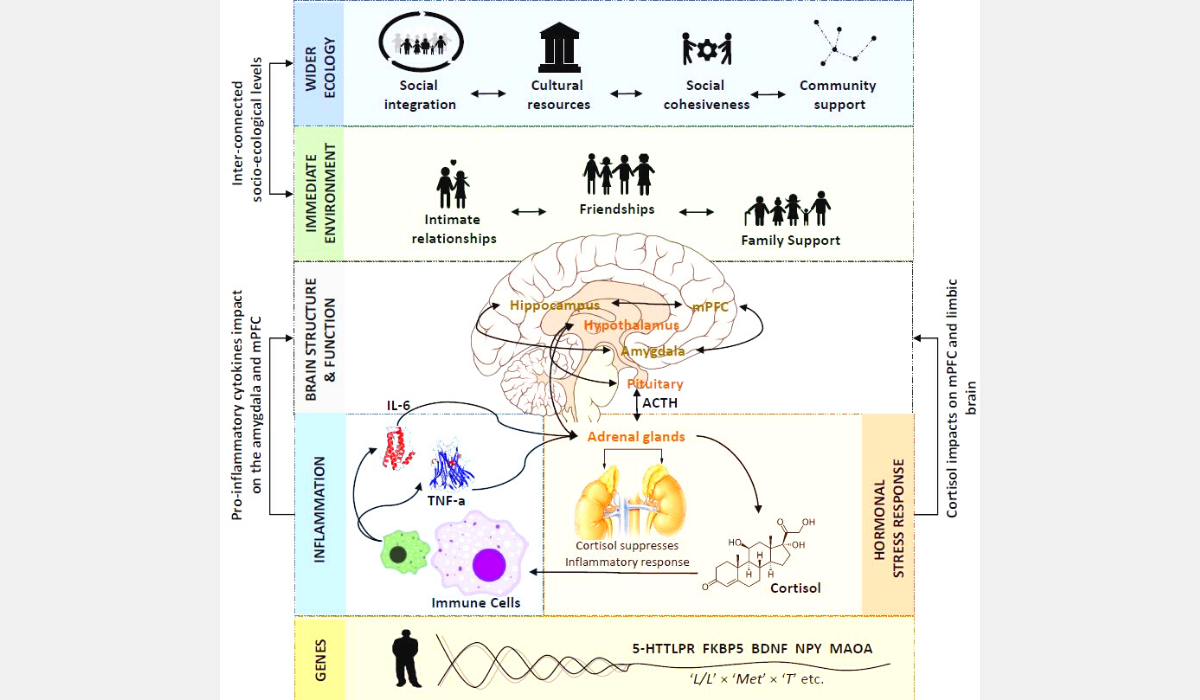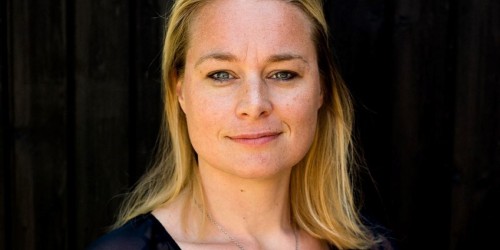
Breaking the cycle of stress, inflammation and depression
Ed Bullmore (Department of Psychiatry) on inflammation and its links to mental health and the brain
College Fellow Dr Anne-Laura Van Harmelen leads promising study on resilient functioning mechanisms
Dr Anne- Laura Van Harmelen, Senior Research Associate at the Department of Psychiatry, University of Cambridge and a Fellow at Lucy Cavendish College, is senior author of a recent published paper titled ‘The complex neurobiology of resilient functioning after childhood maltreatment’.

Up to a third of children worldwide experience childhood maltreatment (CM) which is characterised by behaviour towards a child that is outside the norms of conduct and entails substantial risk of causing physical or emotional harm. CM includes physical abuse, sexual abuse, emotional abuse (psychologic abuse), and neglect.
Children exposed to even a single episode of CM are at risk of repeated, more severe and more physical types of abuse or neglect. CM is associated with poor functioning across a wide range of domains (e.g. social, academic). It has been associated with problems directed towards the self, alcohol abuse, impulse control problems and suicidal behaviours, interpersonal difficulties, social withdrawal, aggression and criminality, physical health difficulties, cognitive problems and mental health disorders.
Although CM is associated with considerably lowered odds of good mental and physical health functioning later in life, a significant proportion of individuals with a history of CM function ‘better than expected’, when compared to other individuals exposed to CM. Those individuals, who may flourish in a single or multiple domains have been described as to be functioning ‘resiliently’.
The paper proposes that individual levels of resilient functioning can be inferred from the residuals of the relation between CM severity and psychological functioning across domains — the extent to which an individual is functioning better than expected given their CM experiences.
Dr Van Harmelen said: “In this paper, we show that resilient functioning after childhood maltreatment is not facilitated by any single ‘resilience biomarker’. Rather, resilient functioning is a product of complex processes and influences across multiple levels, ranging from ‘bottom-up’ polygenetic influences, to ‘top-down’ supportive social influences. These factors are interrelated, and we highlight these complex dynamic interactions and suggest how future studies could embrace a complexity theory approach to investigate resilient functioning after childhood maltreatment.”
Studies should investigate multiple levels of biological organisation and their dynamics using methods and tools that allow the characterisation of resilient functioning trajectories, attractor states and multidimensional/ multilevel assessments of functioning.
Such an approach necessitates large, longitudinal studies on the neurobiological mechanisms of resilient functioning after childhood maltreatment that cut across and integrate multiple levels of explanation.
As such, a turn towards complexity is likely to foster collaboration and integration across fields. It is a promising avenue which may guide future studies aimed to promote resilience in those who have experienced childhood maltreatment.
The study is now out in BMC Medicine: https://rdcu.be/b1Cdu
About Dr Van Harmelen:
Anne -Laura van Harmelen is a Royal Society Dorothy Hodgkin Fellow and Senior Research Associate at the Department of Psychiatry, University of Cambridge and a Fellow at Lucy Cavendish College. She directs the Risk and Resilience Group. The group aims to investigate why some children and adolescents develop mental health problems, and others do not. Her work is funded by the Royal Society and MQ.

Ed Bullmore (Department of Psychiatry) on inflammation and its links to mental health and the brain

Study led by College Fellow Dr Anne-Laura van Harmelen has found that changes in the brain are linked to a greater risk of suicide

College Fellow Dr Anne-Laura van Harmelen conducted a study into adolescent depression, which has been widely reported on.